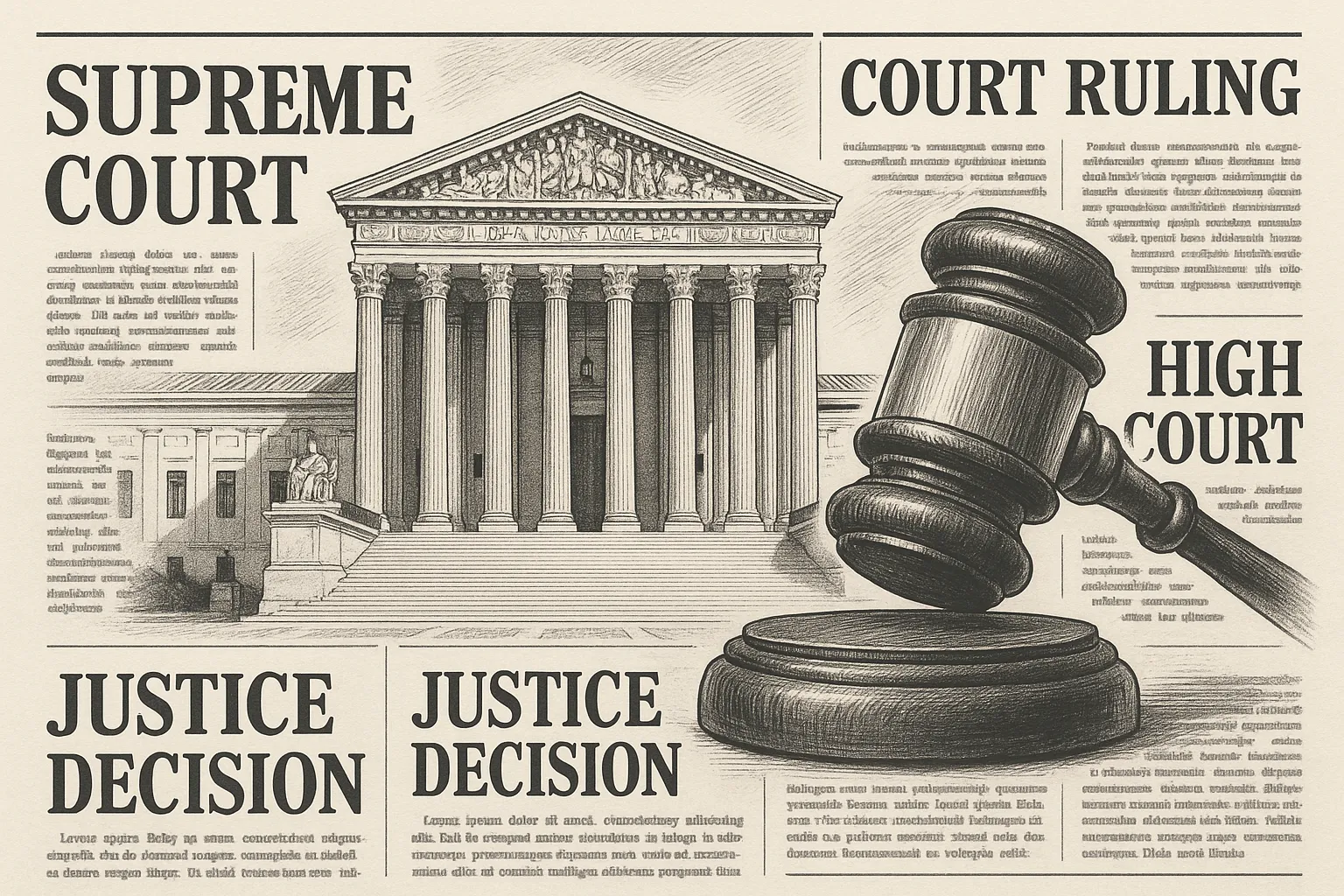Major Supreme Court Developments on August 25, 2025

US Supreme Court Allows NIH to Cut $2 Billion in Research Grants
In a divided 5-4 decision, the Supreme Court ruled that lawsuits by researchers seeking to reinstate nearly $2 billion in National Institutes of Health (NIH) grants must proceed in the Court of Federal Claims rather than federal district court, while upholding a lower-court order declaring the NIH’s grant-termination guidelines unlawful. The majority held that contract-based challenges belong in the specialized court, but allowed district courts to review and enjoin arbitrary agency guidelines-maintaining the June ruling that the Trump administration’s cuts tied to diversity, equity, and inclusion policies were “breathtakingly arbitrary and capricious.” Critics warn that the procedural hurdle will effectively prevent many grant-recipients from securing relief, given the time and cost of litigating in a separate forum.
Sri Lanka Supreme Court Hears Challenges to Former-President Privileges Bill
Colombo, August 25 (LNW) - The Supreme Court of Sri Lanka commenced hearings today on petitions contesting a government-backed bill that seeks to revoke the privileges of former presidents. Before a three-judge bench led by Chief Justice Preethi Padman Surasena, six petitioners argued that the legislation requires a two-thirds parliamentary majority and a nationwide referendum to comply with constitutional safeguards. Solicitor General Viraj Dayaratne defended the bill on behalf of the government. Among the petitioners are Renuka Perera of the SLPP and University Lecturer Mahinda Pathirana.
Supreme Court of India Expands Victims’ Right to Appeal Acquittals
New Delhi, August 25 - In a landmark ruling, the Indian Supreme Court held that crime victims and their legal heirs may appeal against acquittals or unduly lenient sentences under Sections 372 and 374 of the Criminal Procedure Code. Delivered by Justices B.V. Nagarathna and K.V. Viswanathan, the judgment recognizes victims as central participants in criminal proceedings and empowers them to challenge judgments that undermine their rights. The court also confirmed that appeals may continue through legal heirs if a victim dies during the process, establishing a more victim-centric approach in India’s justice system.
Supreme Court Limits Nationwide Injunctions by Lower Courts
Washington, August 25 (CNN) - In a brief, unsigned opinion accompanying recent rulings, the Supreme Court emphasized that its emergency orders are “not conclusive regarding the merits” but serve as guiding precedents for lower courts on nationwide injunctions. The statement followed decisions limiting lower-court authority to issue sweeping injunctions against presidential policies, including rulings on birthright citizenship and independent-agency dismissals. Justice Elena Kagan suggested the Court could enhance its communication to clarify its interim orders for both the bench and the public.
Categories
Beauty and fashion Business and finance Climate Entertainment Food and drink Games Health Hobbies and leisure Jobs and education Law and government Other Politics Science Shopping Sports Technology Travel and transportationRecent Posts
Tags